This article was co-authored by Natalie Feinblatt, PsyD. Dr. Natalie Feinblatt is a Clinical Psychologist with a private practice based in Los Angeles, California. With over 15 years of experience, Dr. Feinblatt specializes in helping people with addiction, trauma, and other mental health struggles. She holds a BA in Psychology from The University of California, San Diego, and a Master’s degree and Doctor of Psychology (PsyD) from Pepperdine University. Dr. Feinblatt is licensed in the state of California.
This article has been viewed 92,705 times.
A cult is a group of people who follow a similar ideology, usually led by a charismatic leader. Many, but not all, cults can be dangerous, mind-controlling, and potentially violent. It’s best to identify and stay away from cults to begin with. Avoid responding to door-to-door surveys and be careful about the groups that you join. If you find yourself involved in cult, you can retain some distance by reaching out to friends and family. Police and law enforcement authorities can also help if you feel unsafe.[1]
Steps
Identifying a Cult
-
1Research the group online. If you are being asked to join an organization, don’t immediately say, “Yes!” Instead, spend a bit of time online researching the group’s background, history, and any recent mentions. Pay attention to how the group determines membership and whether or not they seem more inclusive or exclusive. Be wary of groups that are relatively unknown or ones that take pride in their secretive status.[2]
- Local news sites, in particular, may provide solid leads on which cults are currently active in your area.
-
2Look for one person who is in complete control. Most cults are organized around the whims and leadership of 1 or 2 central leaders with absolute authority.[3] These leaders are often charismatic and pride themselves on their ability to lure others into the cult. Watch out for leaders who set inflexible rules for the group and dispense severe punishments, too.[4]
- A leader might also vocally claim to be the leader of the cult organization.
- Beware of leaders who are exorbitantly wealthy.[5]
Advertisement -
3Be wary of both small and large organizations. Most people assume that a cult needs to be a large organization with many members, usually working under 1 leader. However, many cults are smaller in size and only grow slowly over time. This makes law enforcement authorities less likely to notice them.[6]
-
4Look for similarities in dress and overall appearance. Cults thrive on uniformity and that extends to how cult members look on a daily basis. Beware if a group demands that all members wear particular clothes. They may also pressure members to cut or dye their hair, so that everyone looks the same.[7]
-
5Stay away from groups that preach about the dangers of ‘outsiders.’ Cult members and their leaders will often act as if they hold the truth and everyone else is less worthy. If you get the feeling that a group that you’re in likes to exclude others, then you may need to give yourself some distance. Some cults even pressure potential members to cut off all ties with close friends and family members.
- For instance, cult members might tell you that “only they really care about you.” This can be a way to drive you away from your close support network.
-
6Push back against pressures to change your beliefs. Cults thrive on conformity and expect their members to think along the same lines. If you express your thoughts about a subject and are met with hostility or pressured to change your mind, then you might be dealing with a cult.
- For example, a cult leader might say, “You might have a future in our organization if you decide to believe…”
Staying Away from Cults
-
1Be cautious when responding to surveys or donation requests. Many cults will get their members to approach you on the street in order to ask you to complete a quick survey or to solicit cash or goods donations. They may also go door-to-door. If you choose to participate, be careful in what information you provide.[8]
- If you are interested, ask for their contact information, so that you can do some research before reaching out.
-
2Look for cults that pose as non-threatening groups or clubs. To avoid scaring potential new member away, many cults will actually hide within a large organization or operate as a fairly common organization. The key here is to watch if the group’s expectations begin to change over time or if certain more radical members start to take control.[9]
- For example, some cults pose as Bible study groups or even volunteer organizations. They may wait an extended time before revealing their true nature to individual members.
-
3Recognize if you are a target of “love bombing.” This is when a cult focuses all of their attention and resources on persuading a particular person to join. They might bombard you with affectionate gestures until you feel pressured to give in to their requests or demands. They might also act as if you are central to the group, even if you just barely know them.[10]
- For example, they might give you lavish, expensive gifts in order to show the rewards you can get from their group. These gifts usually won’t last after you’ve given in.
Being Safe When Interacting with Potential Cults
-
1Ask lots of questions. If something concerns you about an organization, reach out to a leader or member and express your concerns. Watch to see how your questions are treated. In most cults, questions are belittled or ignored, as they are believed to undermine the authority of the cult’s leader. A true organization, like a real church, will be transparent about their doctrine and answer your questions.[11]
- For example, you might ask about the group’s leadership structure and if they’ve ever considered following a voting or democratic system.
-
2Push back against increasing control. Cults thrive on being able to micro-manage even the smallest aspects of member’s lives. They may want to tell you what to eat, how to dress, or even where to live. If you recognize these signs, then you may want to leave the group. Or, you can try to go against these rules to see how the group reacts.
- A cult leader might ask that you “only dress in subdued colors, such as pastels.” Or, they may strongly suggest that you grow your hair out to a certain length.
-
3Seek out emotional and mental support from your family and friends. Cults often prey upon the vulnerable. They look for people who are undergoing major transitions in their lives, such as leaving for college. Then, they offer the illusion of stability and support. When you are feeling vulnerable, reach out and maintain close contact with your family and friends.[12]
-
4Watch for drug abuse. Some cults use hallucinogenic drugs, like LSD, to supposedly tap into a higher level of being or consciousness. This drug use may be limited to just the leader of the cult or the upper-echelon members. Easy access to drugs can be another way that a cult can lure in members.[13]
- To convince you to use a drugs, a cult member might say, “If you take this pill, then you’ll be able to relax and be a better member of the group.”
-
5Contact the police if you are being harassed by a cult. Once they’ve set their eyes on you joining, a cult might not take kindly to you rejecting their offers. If you feel as if you are in danger of if you are just concerned for your well-being, it’s best to reach out to local law enforcement authorities. You can tell them your concerns and ask for their advice and assistance.[14]
Community Q&A
-
QuestionWhat if they lock me in a torture chamber and leave me there for days with no way of escape?
 Community AnswerThis is unikely to happen, but read about what great leaders in military engagement and tense civilian life or prison have done when in these situations, and prepare your levels of consciousness for them.
Community AnswerThis is unikely to happen, but read about what great leaders in military engagement and tense civilian life or prison have done when in these situations, and prepare your levels of consciousness for them. -
QuestionWhat if I'm recruited to a cult I want to be in?
 Community AnswerIt comes down to you and your identity. Most cults require allegiance strictly expressed in words and deeds (if not also thoughts), and punish people who don't conform. Many cults abuse their members physically and psychologically. Is there any way to get what your looking for -- a sense of belonging, perhaps? -- without getting involved in a potentially dangerous, abusive organization?
Community AnswerIt comes down to you and your identity. Most cults require allegiance strictly expressed in words and deeds (if not also thoughts), and punish people who don't conform. Many cults abuse their members physically and psychologically. Is there any way to get what your looking for -- a sense of belonging, perhaps? -- without getting involved in a potentially dangerous, abusive organization? -
QuestionHow can I stop people from joining cults?
 Community AnswerIt helps to teach people to recognize the basic characteristics of cults, so that the can identify and avoid them. You can also provide a solid support system for individuals, so that don't feel alone or in need of cult-like support.
Community AnswerIt helps to teach people to recognize the basic characteristics of cults, so that the can identify and avoid them. You can also provide a solid support system for individuals, so that don't feel alone or in need of cult-like support.
Warnings
- Some, but not all, cults do advocate self-harm. If someone asks you to harm yourself or others, reach out to law enforcement and get help immediately.⧼thumbs_response⧽
References
- ↑ http://www.nytimes.com/1982/03/15/style/the-psychology-of-the-cult-experience.html?pagewanted=all
- ↑ Natalie Feinblatt, PsyD. Clinical Psychologist. Expert Interview. 30 July 2021.
- ↑ Natalie Feinblatt, PsyD. Clinical Psychologist. Expert Interview. 30 July 2021.
- ↑ http://www.nytimes.com/1982/03/15/style/the-psychology-of-the-cult-experience.html?pagewanted=all
- ↑ Natalie Feinblatt, PsyD. Clinical Psychologist. Expert Interview. 30 July 2021.
- ↑ https://www.cbsnews.com/news/how-to-identify-a-cult-six-expert-tips/
- ↑ https://www.cbsnews.com/news/how-to-identify-a-cult-six-expert-tips/
- ↑ http://www.koreatimes.co.kr/www/news/nation/2016/09/177_213594.html
- ↑ http://www.koreatimes.co.kr/www/news/nation/2016/09/177_213594.html
- ↑ http://www.koreatimes.co.kr/www/news/nation/2016/09/177_213594.html
- ↑ Natalie Feinblatt, PsyD. Clinical Psychologist. Expert Interview. 30 July 2021.
- ↑ http://www.nytimes.com/1982/03/15/style/the-psychology-of-the-cult-experience.html?pagewanted=all
- ↑ https://www.cbsnews.com/news/how-to-identify-a-cult-six-expert-tips/
- ↑ http://www.koreatimes.co.kr/www/news/nation/2016/09/177_213594.html



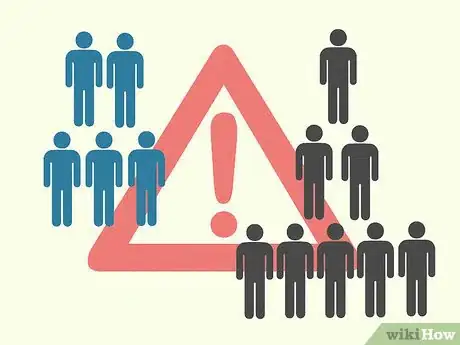

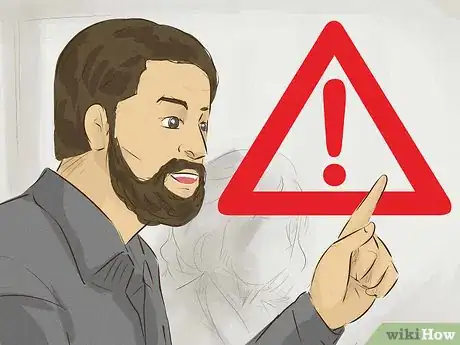
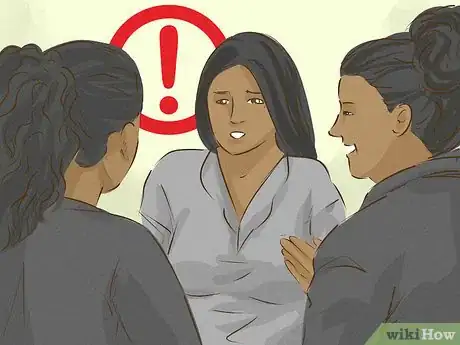
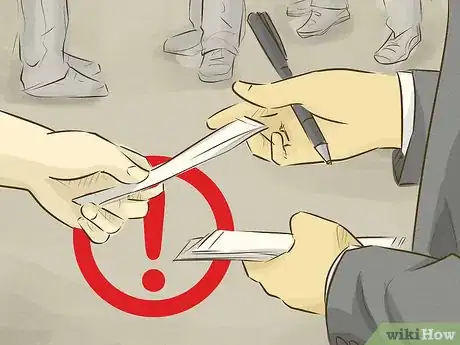
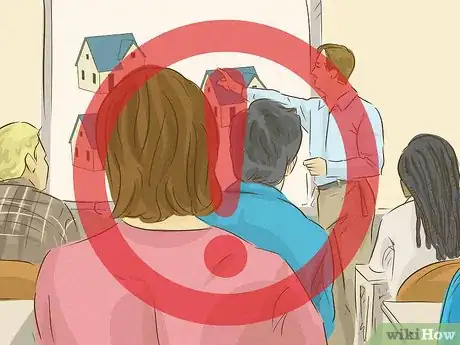


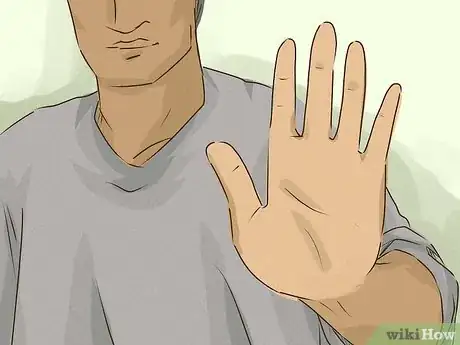
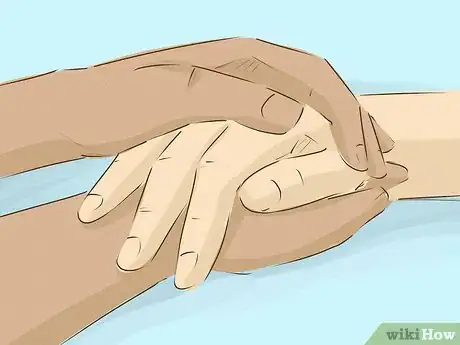
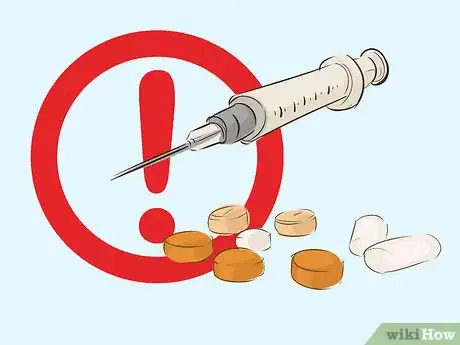
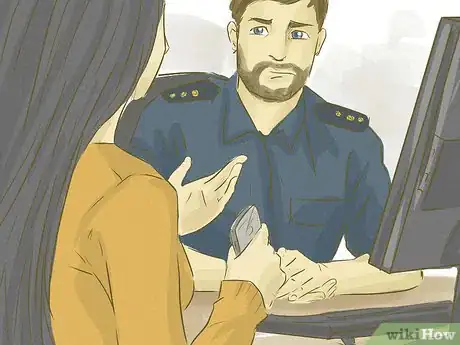


-Step-18.webp)



















-Step-18.webp)



































